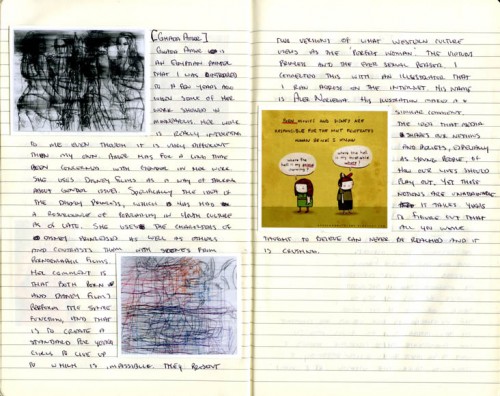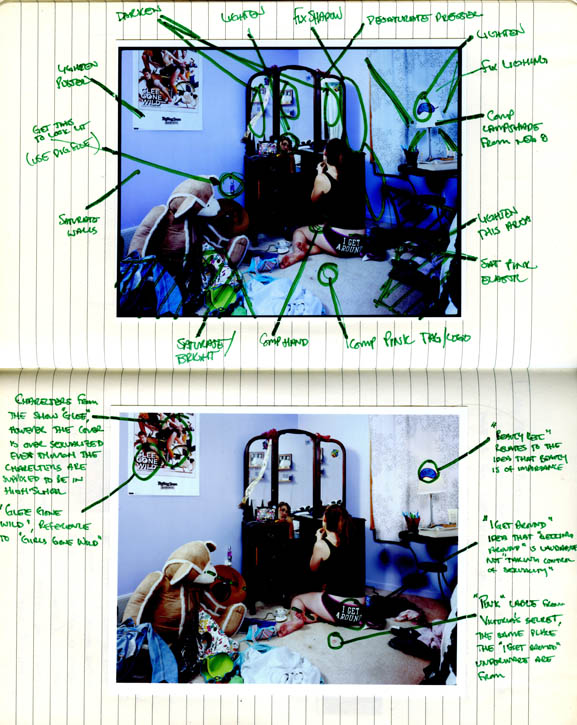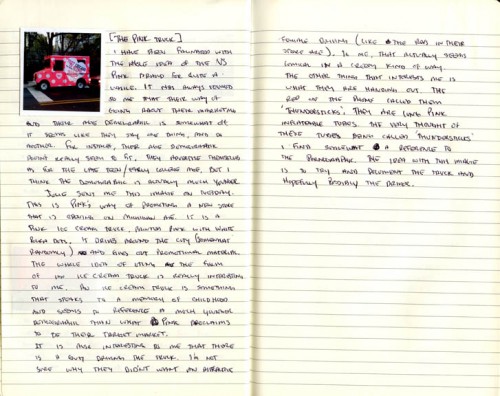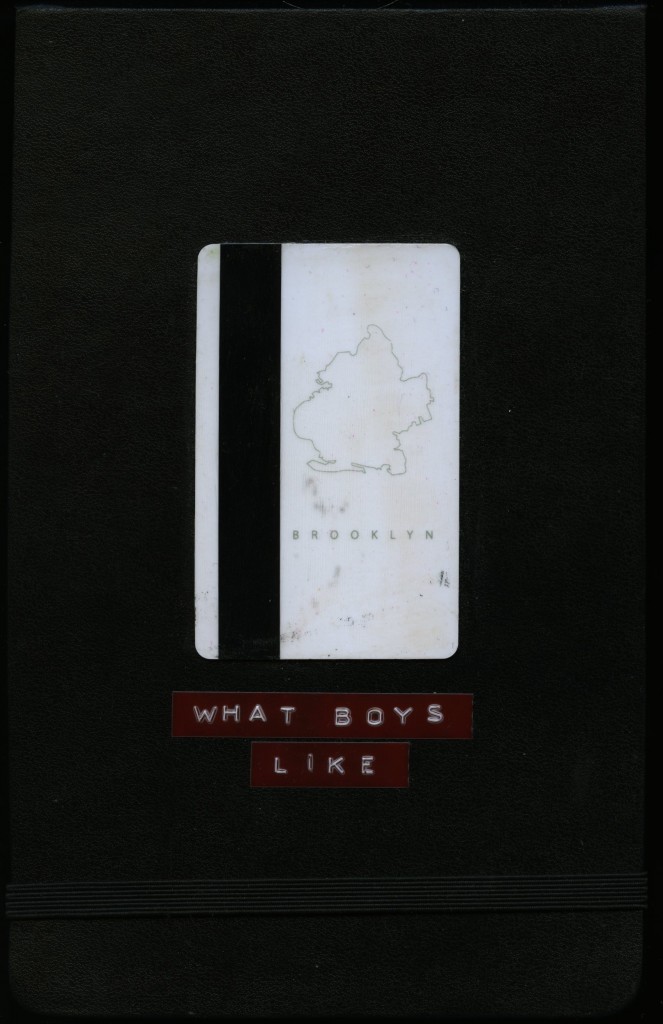The Importance of Writing
One of the things that I think gets glossed over too much is the importance of writing when it comes to making art. This holds true no matter what media you may be working in. Whether it’s painting, drawing, 3-D work, photography, or some sort of digital media, you have to have a reason for making the art you are making and you have to be able to express those ideas to the general public in an articulate and understandable manner.
 I have seen a lot of artists who simply can’t put a sentence together, and I think that takes a lot away from the art. One thing I have found helpful is to write about the work I want to make before and while I am making it, instead of looking back when I am finished and writing my artist statement then. Mostly this is because I am forgetful. I will think of a great idea or a reason that I want to make a specific image, then a few days later I will have forgotten it. Sometimes I remember, but many times the original trigger was something out in the world that I witnessed, and if I don’t write it down right away it’s lost for good.
I have seen a lot of artists who simply can’t put a sentence together, and I think that takes a lot away from the art. One thing I have found helpful is to write about the work I want to make before and while I am making it, instead of looking back when I am finished and writing my artist statement then. Mostly this is because I am forgetful. I will think of a great idea or a reason that I want to make a specific image, then a few days later I will have forgotten it. Sometimes I remember, but many times the original trigger was something out in the world that I witnessed, and if I don’t write it down right away it’s lost for good.
 When I started working on “Technically Intimate” back in 2008, I was out of the country. I had nothing to do so I started to write about all of the work I wanted to make when I got home (so I wouldn’t forget). This was a great help to me. It helped to ground the ideas that I had been thinking about for a long time. Plus, I work a little differently then most photographers. I plan everything out (the whole body of work) before I even take the first image. Things get added as I go, and sometimes things change along the way, but the broad strokes are all mapped out. It helps me to figure out why I want to make the work I do, and why I think it is important.
When I started working on “Technically Intimate” back in 2008, I was out of the country. I had nothing to do so I started to write about all of the work I wanted to make when I got home (so I wouldn’t forget). This was a great help to me. It helped to ground the ideas that I had been thinking about for a long time. Plus, I work a little differently then most photographers. I plan everything out (the whole body of work) before I even take the first image. Things get added as I go, and sometimes things change along the way, but the broad strokes are all mapped out. It helps me to figure out why I want to make the work I do, and why I think it is important.
 The other thing I like to write is questions I am asked about the work. Many times in critique someone will ask you a question you hadn’t thought of. Most of the time they are big questions that can’t be answered in the moment (although some people try). I don’t even bother trying to answer them in critique, because it is impossible. Instead, I just write them down, take them home, really think about them, and write out an answer. Sometimes those answers change the direction of the work, and sometimes they firm up the direction the work was already headed, but either way it is important to be able to answer those questions. The next time that same question is posed, I will have an answer which will either lead to more questions or a challenging of the answer I gave. All of this shapes the work in only the way that a graduate program can.
The other thing I like to write is questions I am asked about the work. Many times in critique someone will ask you a question you hadn’t thought of. Most of the time they are big questions that can’t be answered in the moment (although some people try). I don’t even bother trying to answer them in critique, because it is impossible. Instead, I just write them down, take them home, really think about them, and write out an answer. Sometimes those answers change the direction of the work, and sometimes they firm up the direction the work was already headed, but either way it is important to be able to answer those questions. The next time that same question is posed, I will have an answer which will either lead to more questions or a challenging of the answer I gave. All of this shapes the work in only the way that a graduate program can.
Then, when the work is finished, I have written so much about what I have been doing that writing an artist statement is easy, and answering questions about the work comes like second nature.

